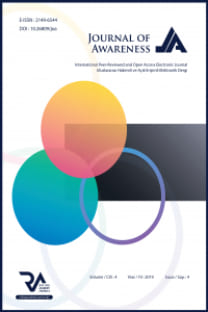MAASTRICHT KRİTERLERİ, PARASAL BİRLİK ve TÜRKİYE
Avrupa Birliği anlaşması olarak kabul edilen ve ekonomik ve parasal birliğin aşamalarını, bu aşamalarda izlenecek ekonomik, parasal politikaları ve bunları uygulamak için gereken kurumsal değişiklikleri düzenleyen Maastricht kriterleri, üye ülkelerin uymakla mükellef olduğu ve uymadıkları taktirde belli bir yaptırıma tabi tuttuğu kuralları düzenlemektedir. Birliğin en önemli ülkelerinin birliği gerek kurumsal gerek mali açıdan bir bütünlük içerisinde görmemeleri ve bazı ülkelerin borç yükünü diğer ülkelerin üzerine yüklemesi birliğin yavaş yavaş çözülmesine neden olmuştur. İngiltere’nin 2016 yılında yapılan referandumla birlikten ayrılmaya yönelik almış olduğu karar bu düşünceyi destekler niteliktedir. Uzun vadede ekonomik ve siyasi açıdan güçlü diğer birlik ülkelerinin de bu kararı örnek alarak böyle bir yola başvurması beklenmektedir. Bu çalışmada Maastricht kriterleri anlatılacak, parasal birlik kavramı ve parasal birliğe dahil ülkelerin Maastricht kriterlerine uygunluğu sorgulanacak, İngiltere’nin birlikten ayrılmasından sonra birliğin mevcut durumu da göz önünde bulundurularak, Türkiye’nin birliğe dahil olup olmama durumunun olumlu ve olumsuz yönleri tartışılacaktır.
Anahtar Kelimeler:
Maastricht kriterleri, Parasal Birlik, Avrupa Birliği
MAASTRICHT CRITERIA, MONETARY UNION AND TURKEY
The Maastricht criteries, which are considered to be European Union agreements and regulate the stages of economic and monetary union, the economic and monetary policies to be followed at these stages and the institutional changes needed to implement them, regulate the rules that member states are obliged to obey and that certain sanctions are imposed. The differences between the countries since its establishment that are structurally and economically diverged have always resulted in the questioning of the union. The most important countries in the union did not see the union as an institutional or financial cohesion, and therefore it led to the gradual dissolution of the union of other countries to overthrow the debt burden of some countries. The decision that the UK has taken to leave the union with a referendum held in 2016 supports this notion. It is expected that other union countries which are strong economically and politically in the long term will resort to such a way by taking this decision as an example. In this study, Maastricht criteria will be explained, the concept of monetary union and the suitability of countries including monetary union to Maastricht criteria will be questioned and considering the current situation of the union after the departure of the United Kingdom, the positive and negative aspects of Turkey's inclusion in the Union will be discussed
Keywords:
Maastricht Criteria, Monetary Union, European Union,
- ISSN: 2149-6544
- Başlangıç: 2016
- Yayıncı: Rating Academy
Sayıdaki Diğer Makaleler
GÖKÇEADA’NIN (ÇANAKKALE) PALEOCOĞRAFYA ÖZELLİKLERİ VE JEOARKEOLOJİSİ
Rekreasyon, gündelik yaşam kalitesinde bir marka; “bana iyi geldi”
UZUN METRAJLI 3D DİJİTAL ANİMASYONLARIN ÜRETİM SÜREÇLERİ VE KULLANILAN TEKNİKLER
ISIS VE HORUS’TAN MERYEM VE ÇOCUK’A
"Seramik Tasarımında Güzeli Arayış Sürecinde Yerel Değerlerin Esin Kaynağı Olarak Kullanımı"
YABANCI DİL OLARAK TÜRKÇE ÖĞRENENLERİN KONUŞMA ÖZ YETERLİLİKLERİNİN BELİRLENMESİ (ÇOMÜ TÖMER ÖRNEĞİ)
Gülnur AYDIN, Abdullah ŞAHİN, Esin YAĞMUR, Kübra EMRE, Mesout Kalın SALI
Gündelik Yaşamın Güzellik Algısı'nın Tiyatroda Eleştirisi: Çirkin
AKSARAY İLİNDE ÇORAP VE PATİK ÖRÜCÜLÜĞÜ
Semra KILIÇ KARATAY, Naile Rengin OYMAN
